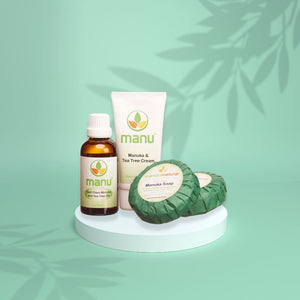The future of healthcare is likely to see a resurgence in the use of medicinal plants, thanks to their natural healing properties and growing scientific validation. Here are some of the most interesting medicinal plants that are expected to play a significant role in future healthcare:
Cannabis (Cannabis sativa)

Cannabis has gained widespread attention for its medicinal properties, particularly its cannabinoids, such as THC and CBD. These compounds have been shown to have a wide range of therapeutic effects, including pain relief, anti-inflammatory properties, and the ability to reduce seizures in epilepsy patients. As research continues, cannabis is expected to be a major player in the treatment of chronic pain, anxiety, and neurological disorders.
Turmeric (Curcuma longa)

Turmeric, a staple in traditional Indian medicine, contains curcumin, a powerful anti-inflammatory and antioxidant compound. Curcumin has shown promise in the prevention and treatment of various conditions, including arthritis, heart disease, and even cancer. Future healthcare may see turmeric being used more widely as a natural alternative to synthetic anti-inflammatory drugs, with ongoing research exploring its potential in preventing neurodegenerative diseases like Alzheimer’s.
Ashwagandha (Withania somnifera)

Ashwagandha is an adaptogenic herb widely used in Ayurvedic medicine. It is known for its ability to reduce stress and anxiety, improve cognitive function, and boost overall vitality. With stress-related disorders on the rise, ashwagandha is expected to play an increasingly important role in mental health care. Its neuroprotective properties are also being explored for use in conditions like Parkinson’s and Alzheimer’s disease.
Ginseng (Panax ginseng and Panax quinquefolius)

Ginseng, both Asian (Panax ginseng) and American (Panax quinquefolius), is renowned for its ability to boost energy, enhance cognitive function, and support immune health. Ginseng is also being studied for its potential to improve cardiovascular health and manage diabetes. As a powerful adaptogen, ginseng could become a cornerstone of preventive healthcare, helping people manage stress and maintain overall well-being.
Echinacea (Echinacea purpurea)

Echinacea is a popular medicinal plant known for its immune-boosting properties. It is commonly used to prevent and treat colds and flu. Research is ongoing into its broader antiviral and antimicrobial effects, which could see echinacea being used in the future to support the immune system during pandemics and other widespread infections.
Aloe Vera (Aloe barbadensis)

Aloe vera has been used for centuries to treat skin conditions and wounds. Its soothing, anti-inflammatory, and antimicrobial properties make it a key player in future skincare and wound healing therapies. Aloe vera is also being studied for its potential to treat gastrointestinal issues and its role in promoting overall digestive health.
Ginger (Zingiber officinale)

Ginger is widely recognized for its anti-nausea and anti-inflammatory properties. It is commonly used to treat digestive issues, reduce muscle pain, and alleviate symptoms of arthritis. Future healthcare may see ginger being used more extensively as a natural remedy for inflammatory conditions, with ongoing research into its potential anticancer properties.
Holy Basil (Ocimum sanctum or Tulsi)

Holy basil, also known as tulsi, is revered in Ayurvedic medicine for its adaptogenic and stress-relieving properties. It has been shown to help regulate blood sugar levels, support the immune system, and improve mental clarity. As lifestyle-related health issues, such as diabetes and stress, become more prevalent, holy basil is expected to be an important part of holistic treatment plans.
Rhodiola (Rhodiola rosea)

Rhodiola is an adaptogen known for its ability to reduce fatigue, enhance physical and mental performance, and support mood balance. It is particularly useful in managing stress and burnout, making it highly relevant in today’s fast-paced world. Rhodiola is likely to be increasingly used in mental health care, particularly for conditions like depression and anxiety.
Milk Thistle (Silybum marianum)

Milk thistle is primarily known for its liver-protective properties, thanks to its active compound, silymarin. It is used to support liver health, particularly in cases of liver disease or damage caused by toxins. With liver disease on the rise due to factors like alcohol consumption and obesity, milk thistle is expected to play a crucial role in liver health management in the future.
Peppermint (Mentha piperita)

Peppermint is well-known for its ability to soothe digestive issues, such as irritable bowel syndrome (IBS). It also has analgesic properties and is used to relieve headaches and muscle pain. As digestive disorders become more common, peppermint’s role in gastrointestinal health is likely to expand, with potential applications in treating conditions like IBS and indigestion.
Saffron (Crocus sativus)

Saffron, the world’s most expensive spice, is gaining attention for its potential in treating depression and enhancing mood. Research suggests that saffron may be as effective as some pharmaceutical antidepressants, with fewer side effects. Future healthcare could see saffron being used more widely as a natural antidepressant, especially in populations sensitive to conventional medications.
Lion’s Mane Mushroom (Hericium erinaceus)

Lion’s mane mushroom is known for its neuroprotective properties and its ability to stimulate nerve growth factor (NGF) production, which is crucial for brain health. It is being studied for its potential in treating neurodegenerative diseases like Alzheimer’s and Parkinson’s. As the global population ages, lion’s mane could become a key player in cognitive health and neuroprotection.
Moringa (Moringa oleifera)

Moringa, often called the "miracle tree," is packed with nutrients and has anti-inflammatory, antioxidant, and antimicrobial properties. It is used to treat a wide range of conditions, from malnutrition to chronic inflammation. In the future, moringa could play a significant role in global health, particularly in addressing malnutrition and supporting overall wellness.
Neem (Azadirachta indica)

Neem is a powerful medicinal plant with antibacterial, antiviral, and antifungal properties. It is used in traditional medicine to treat skin conditions, infections, and even dental problems. As interest in natural and preventative health care grows, neem’s wide-ranging therapeutic properties are likely to make it a staple in future holistic treatments.
Conclusion
These medicinal plants represent just a fraction of the rich biodiversity that herbal medicine offers. As research and technology advance, these plants are expected to play increasingly important roles in future healthcare, offering natural and holistic alternatives to synthetic drugs. Their potential to address a wide range of health issues, from chronic diseases to mental health, underscores the enduring relevance of herbal medicine in modern and future healthcare systems.




Leave a comment